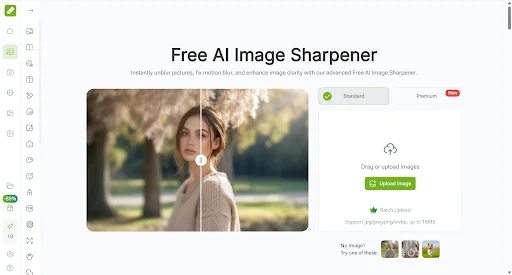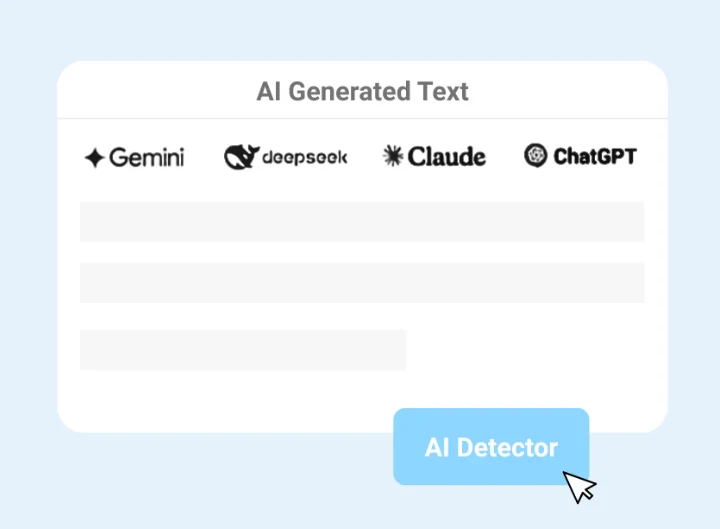What Are Role of AI in Business Lead Generation?

Lead generation in modern days is becoming increasingly difficult for companies. Competition is fierce, customer behavior evolves quickly, and teams can spend hours performing manual labor that slows everything down.
For this reason, businesses require smarter tools to discover and convert leads, and AI is the answer.
Here are some of the challenges regularly seen in businesses today.
- Rising competition across every industry
- Too much information to process by hand
- Slow research and lead qualification
- Low turnout from the old ways of outreach
AI is changing that process by helping businesses work faster and more accurately. It identifies the best prospects and determines buying intent, then recommends optimal ways to connect with those individuals. That translates to more quality leads and better conversion.
What Is AI Lead Generation?
AI lead generation employs machine learning to discover, qualify, and develop leads. It is built on machine learning, automation, predictive analytics, and logic features to analyze buyer behaviour and find the best leads.
Classic lead generation relies on manual work and instincts, AI makes decisions based on data at a much faster pace with greater accuracy. It can peruse websites, social media, CRM records, and user activity to identify people who are demonstrating buying intent.
AI tools can even qualify leads based on interests, behavior, and engagement without any human involvement. In practice, AI software sends personalized emails based on our past interactions with the brand, scores leads automatically, and chats with web visitors through smart chatbots.
This enables them to target companies at the right time with the right message.
Key Roles of AI in Business Lead Generation
AI is now one of the most important tools for modern business to business lead generation. It reduces manual work, improves accuracy, and helps businesses find better leads in less time. Below are the key roles AI plays in the entire lead generation process.
Automating Lead Research & Prospecting
Finding prospects manually takes hours. AI solves this by collecting and analyzing data from websites, social media, and CRM systems within minutes.
How AI helps:
- It scrapes large amounts of data in real time
- It reduces manual research tasks and saves valuable hours
- It finds high-intent leads by tracking behavior and engagement signals
This means teams can focus on conversations instead of searching for prospects.
Improving Lead Qualification with Predictive Scoring
AI does not just find leads, it also tells you which ones are worth your time. It uses behavioral data, firmographics, and engagement patterns to score leads based on buying intent.
Why predictive scoring matters:
- It increases conversion rates by focusing on ready-to-buy leads
- It identifies patterns humans may miss
- It gives sales teams a clear list of high-priority prospects
AI predictive scoring helps businesses avoid guesswork and make smarter decisions.
Personalizing Outreach at Scale
AI makes personalization easy, even when you have thousands of leads. It can write emails, create variations, and adjust messages based on user behavior.
Where AI improves outreach:
- AI email tools personalize subject lines and messages
- Chatbots send human-like replies in real time
- Hyper-personalized messages increase open, reply, and response rates
This level of personalization increases engagement and helps build trust.
Enhancing Lead Nurturing
Not every lead is ready to buy. AI helps nurture them through automated sequences and smart follow-ups.
How AI improves nurturing:
- It creates sequences based on the lead’s stage in the buyer journey
- It automates follow-up emails, reminders, and timing
- Generative AI writes helpful content for nurturing campaigns
This ensures that no lead is ignored, and every lead receives the right message at the right time.
Streamlining Sales & Marketing Alignment
One of the biggest challenges for businesses is poor coordination between sales and marketing teams. AI helps fix this by connecting tools and improving data flow.
What AI does:
- It syncs data between CRM and outreach tools
- It removes inconsistent data and reduces errors
- It provides real-time analytics for both teams
This creates a smooth lead handoff and improves overall performance.
Benefits of Using AI in Lead Generation
AI is not only helpful, it brings clear and measurable benefits that improve the entire lead generation process.
Saves Time & Resources
AI handles repetitive tasks like research, data entry, and follow-ups.
Benefits:
- Teams spend less time on manual work
- Salespeople can focus more on conversations and closing deals
This improves productivity and reduces workload.
Higher Lead Quality & Conversion
AI uses data to find the most relevant leads, which increases overall conversion rates.
Why this matters:
- You get more accurate and high-potential leads
- Marketing campaigns become more targeted and efficient
Better leads mean better results.
24/7 Lead Engagement
AI tools work even when your team is offline.
Examples:
- AI chatbots answer questions instantly
- Automated sequences capture leads at any time of the day
This ensures continuous engagement, even outside business hours.
Data-Driven Decisions
AI gives clear insights about how leads behave and how campaigns perform.
How this helps:
- Businesses understand what works and what doesn’t
- Predictive analytics improves future strategies
With better data, lead generation becomes more consistent and predictable.
How to Implement AI in Your Lead Generation Strategy
It’s easy to incorporate AI into your lead generation strategy if you stick with a clear-cut plan. Here’s what you need to do.
Step 1: Share Your Lead Generation Objectives
Figure out what you want to accomplish. That might be more website traffic, more MQLs, more SQLs, or times chosen to book an appointment. Clear objectives enable you to select the appropriate AI tools.
Step 2: Select the Right Data Sources
AI is generally only as good as the data that it’s provided. Leverage data from your CRM, website analytics, social media activity, and customer behavior resources. These data points have the power to inform AI about who your audience is.
Step 3: Choose AI Tools That Are Customized to Your Workflow
Choose tools that align with your budget, team size, and daily workflow. For instance, a small team might utilize an AI email tool, versus a larger company going for a CRM with embedded AI.
Step 4: Train Your AI Models
Import customer data, buyer personas, and sales processes. This will help AI understand your business and make better predictions.
Example: Feeding AI old customer profiles helps it score new leads more precisely.
Step 5: Monitor & Optimize
Monitor open rates, conversions, and engagement. AI improves with successive tweaks.
Example: If your emails don’t get a lot of responses, you may be prompted to use different subject lines or send them at different times using AI.
Future of AI in Lead Generation
Artificial intelligence in lead generation has a future. AI will generate hyper-personalized automation pipelines that dynamically alter themselves in accordance with every buyer’s behavior.
Early conversations and qualified leads will be handled by ingenious sales agents, who work independently of human assistance. Predictive cues will indicate when a prospect is near to purchase.
AI-driven voice assistants can also make outbound calls and answer simple questions.
With the advancement of AI, businesses also need to consider ethics and data privacy. It will be important for clear policies to keep customer information safe and maintain trust.
Conclusion
AI is transforming the search for leads and customer conversion. It simplifies the process, accelerates it, and standardizes the quality. Teams can concentrate on conversations instead of manual tasks, and the result is often better.
It’s an investment for the future to enable growth at scale and improve quality lead generation. It’s the best time for companies to begin implementing AI tools into their workflow in order to create a smarter and more efficient sales flow.

How Sales Teams Increased Productivity with Parallel Dialers

Curtain Dry Cleaning and Leather Sofa Cleaning – Reliable Care by Duo Nini

Brian Ferdinand of EverForward Trading Joins Forbes Finance Council, Expanding His Voice on Markets and Risk

The Complete Guide to Growing on Twitch: Should You Buy Twitch Followers?

How Technology Is Changing Addiction Recovery in the Digital Age.

Unlocking Innovation: How an AI Software Development Service Can Transform Your Business

Artificial Intelligence: Transforming the Future of Business and Everyday Life

AI-Driven Image Restoration & Reuse: VisualGPT AI Image Sharpener









